Refresh
Philip Michaels signing back on here after my colleagues in the UK and east coast managed this live blog earlier in the morning And as I sign on for the duration, Mark Spoonauer is now at Apple HQ and waiting for the WWDC keynote to begin.
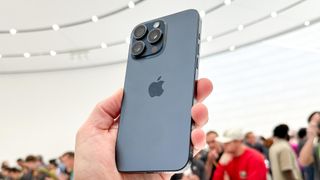
Apple Intelligence is definitely coming
AI is coming to Apple devices, but it may not be the AI you were expecting. According to one recent report, we won’t be seeing Artificial Intelligence; we’ll be seeing Apple Intelligence instead. It is so typical of Apple to get its own name on everything, no matter how likely people are to mix up their acronyms.
Apple Intelligence is supposed to be coming to iPhone, iPad and Macs later this year — with a blend of features made by Apple and powered by OpenAI. We’d also like to see AI appear on Apple Watch, especially if Apple does launch a new AI-infused version of Siri in its ecosystem. Just don’t make the mistake of calling it artificial intelligence when any Apple superfans are around.
How long until your iPhone stops getting iOS updates?
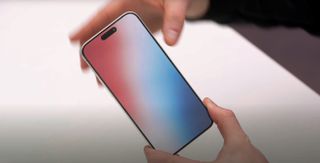
On the subject of Apple software, it’s always worth bringing up the longevity of iPhones and iOS updates. Historically Apple has offered pretty extensive support for older iPhones, typically offering 5 or more years of full iOS updates. But in the aftermath of Google and Samsung offering 7 years of full Android support, Apple has clarified it won’t go quite that far.
New U.K. regulations mean Apple has had to officially confirm the minimum level of support each iPhone will receive: 5 years. That doesn’t discount the possibility of phones getting more support, especially where security updates are concerned, but it does mean there’s no guarantee. And it means Apple is lagging behind two of its biggest rivals in that department after so many years of making them look bad.
Knowing that we can deduce that iOS 18 will likely be available on every iPhone up to 2019’s iPhone 11. It also means the iPhone 15 will be supported until at least 2028 and the upcoming iPhone 16 should get updates until at least 2029.
Locking your apps with Face ID
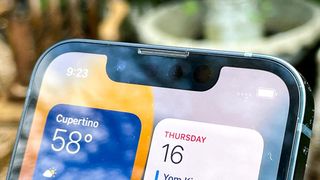
Apple could launch a brand new security feature in iOS 18, and it’s quite shocking it’s taken the company this long to offer it. Word is that users will be able to lock individual apps behind Face ID, Touch ID or a passcode. That could help keep your more sensitive apps a little bit more secure.
The downside is that this feature may be limited to preinstalled apps, i.e. the ones made by Apple. Which feels like a massive waste, but we’re hoping that it expands to third party apps in the near future. Especially since Google just launched Private Space, which locks down apps and files from prying eyes, as part of the Android 15 beta.
Because there’s a lot of sensitive data on your phone, and it would be very useful to ensure apps will still be secure on the off-chance that someone managed to bypass your lockscreen.
Which devices will get iOS 18?
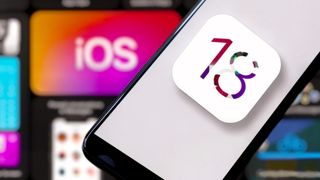
Which devices are likely to support iOS 18 and iPadOS 18 when it launches later this year? Apple hasn’t confirmed just yet, but a leaked list could tell us whether your ageing device will be able to take advantage of those new features and upgrades.
According to one leak every iPhone that can run iOS 17 will be upgradable to iOS 18. That includes the iPhone XS, iPhone XR, iPhone SE 2020 and iPhone SE 2022, plus iPhones 11 through 15. The iPhone 16 series is expected to come running iOS 18 right out of the box.
As for the iPads the leak claims that you can have iPadOS 18 on iPad, iPad Air and iPad mini models that were first released in 2019 or later. iPad Pro owners get an extra year of support it seems, and apparently devices launched in 2018 or later will be upgradable to the new software.
Apple is coming for the best password manager apps

While AI may be getting most of the attention, WWDC 2024 may also see Apple launch some other incredibly useful (and long-awaited) features. One of those features is reported to be a fully-fledged Apple Password manager, designed to work across iPhones, iPads, Macs and even the Vision Pro.
According to Mark Gurman, this feature will be built on iCloud Keychain, which Apple users will no doubt be familiar with already. But the key difference is that all your saved passwords will be accessible in a single place — making them easier to access. The app is also said to be able to store Wi-Fi details and passkeys, while also acting as an authenticator app with two-factor authentication codes.
Apple AI may not be perfect at launch

If you had plans to sign up for the iOS 18 public beta to get hold of the upcoming AI features a little early, here’s some warning. According to a report from Mark Gurman at Bloomberg, those beta features could be “especially buggy”. And those features could be official in beta all the way up to the stable release of iOS 18 this fall.
Gurman has spoken about this before, and it’s been claimed that Apple will be referring to AI features as a “preview” rather than finished tech. Beta testing does come with certain risks, and there’s no guarantee that the software will work as advertised. Figuring out where things go wrong is the whole point, after all.
So expect iOS 18’s AI features to behave more like experimental new features, rather than a more-refined software you typically get in one of Apple’s betas. Though whether the situation will change by September, when iOS 18 launches for real, is still unclear.
iPad could finally get a calculator
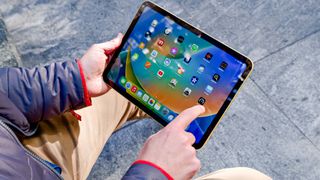
It seems incomprehensible that 24 years into this millennium, the iPad lacks a built-in calculator app of its own. That’s supposed to change in iPadOS 18, which is et to introduce a Calculator app to Apple’s tablet. And the app is rumored to be getting new features like a resizable window and a list of recent calculations to make this a much more formidable calculator.
It could be a very big WWDC for the Calculator, as the Notes app is supposed to feature tighter Calculator integration. Specifically, a “Math Notes” feature is supposed to allow the Notes app to better display equations, graphs and the like, as Notes becomes a more useful tool for students.
Siri 2.0 and Apple Watch are the perfect pairing
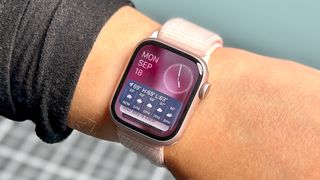
WatchOS isn’t getting a lot of attention in the build up to WWDC. But fitness editor James Frew suggests that maybe it ought to. And Siri is a big reason why.
The Siri overhaul predicted for this year isn’t only going to impact the iPhone; rather, it’s supposed to stretch across different Apple platforms, including the Mac and the Apple Watch. It’s that latter device that most interests our fitness editor, who argues that a smarter Siri could make the Apple Watch the ultimate AI wearable.
OpenAI could be key to Apple AI’s success
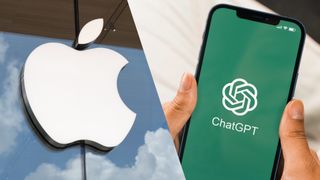
AI is going to play a huge role in iOS 18, and from the sound of things OpenAI is locked in to power a bunch of the generative AI features Apple is set to offer. Of course bringing in a third party company opens up a whole discussion about privacy and security — two things Apple has been pushing hard the past few years. Thankfully there’s a very simple solution.
OpenAI features on iPhone (and iPad) will be opt-in. That way anyone with concerns about the kind of data OpenAI may have access to, or how it will be used, can avoid those features entirely. You just turn them on, and your device will be kept free of anything to do with OpenAI.
You’ll miss out on everything those new AI features will have to offer, but if you’d rather wait for Apple to develop its own systems then you’ll be able to carry on as normal.
Apple Vision Pro could go international
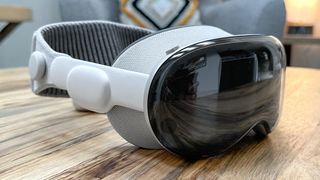
While we’re not expecting Apple to announce a successor to the Apple Vision Pro at WWDC 2024, that doesn’t mean the keynote will ignore the headset entirely. Rumor has it that Apple is gearing up to release the Vision Pro outside the U.S., meaning international buyers may not have to resort to buying from scalpers for much longer.
It’s been reported that Apple has flown “hundreds of employees from its international stores” to its headquarters in Cupertino, all to train them on all things Vision Pro. That way they can be ready to demo the headset to prospective buyers around the world, and hopefully pick things up after the Vision Pro’s sales slump.
The countries expecting to get the Vision Pro next include Germany, France, Australia, Japan, South Korea, Singapore and China. Sadly there’s been no word on whether the headset will expand to other large countries later on.
The main benefit is that prospective buyers should be able to demo the Vision Pro at the Apple Store, and order a headset that’s been configured to their face shape. Plus you won’t have to pay the markup that resellers tend to charge. And when the device in question if $3,500, you definitely don’t want to have to pay more than you need to.
Which iPhones will get Apple AI?
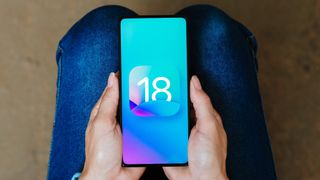
I have some big questions about iOS 18 heading into WWDC, and chief among them is exactly which AI features will run on what iPhones.
We’ve heard that the best experience for AI on the iPhone will require an iPhone 15 Pro or later. That would essentially mean you’d need either an iPhone 15 Pro or an iPhone 15 Pro Max — or you’ll need to upgrade to one of the new iPhones coming out this fall. The idea is that only a phone powered by an A17 chipset or later will have the processing power and neural engine to handle iOS 18’s new AI features.
Here’s what’s not clear about that, though: does that suggest only those phones will be able to handle on-device AI and that older iPhones will need to off-load things to the cloud? Or will older iPhones be shut out of AI entirely? A comment in a recent Mark Gurman column at Bloomberg seemingly suggests the latter:
The processing requirements of AI will mean that users need an iPhone 15 Pro or one of the models coming out this year.
I choose to believe that we’re talking about on-device AI here, and that older iPhones will be able to turn to cloud-based servers to assist with AI. We’ll find out for certain later today.
iOS 18 may offer some iPhone 16 clues
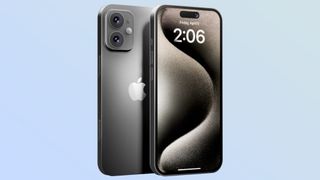
As exciting a time as WWDC is, it usually takes a back seat on the Apple events calendar to the fall iPhone launch. (Apple hasn’t announced a date for that yet, obviously, but if we were to make an educated guess, we’d suggest September 10 as the ideal iPhone 16 release date.) But this year might be different.
That’s coming straight from Tom’s Guide editorial director Mark Spoonauer, who thinks that iOS 18 may overshadow the iPhone 16 this year. The reason? While the iPhones are going to see some changes this year — the most notable might be larger screen sizes for the iPhone 16 Pro models — we’re not expecting anything dramatic, at least not along the lines of the AI features Apple has planned for the iPhone at least.
So if you’re eager to see what the highlights of the next batch of iPhones will be, today’s iOS 18 preview may give you a pretty good clue.
What will macOS be called this year?
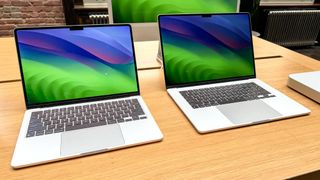
An annual tradition just ahead of each year’s WWDC keynote that’s beloved by all — well, beloved by me, anyhow — is trying to guess what name the new version of macOS will be released under. As you may well remember, since macOS 10.9, Apple has named its Mac software after various locations around California, the home state of the Mac maker. If you’ll excuse this stroll down memory lane, those nicknames since macOS 11 have included
- macOS Big Sur;
- macOS Monterey;
- macOS Ventura; and the current version,
- macOS Sonoma
So what’s it going to be this year? Coastlines (Mavericks), mountains (Sierra), deserts (Mojave) and national parks (Yosemite and El Capitan) are already well-represented. My guess is that the name will reflect the arrival of AI features in macOS, with a revamped Siri as the star of the show.
Ladies and gentlemen, I suggest that macOS 15 is going to be unveiled as macOS Hollywood. The good people of Hollywood, Fla., will just have to live with it.

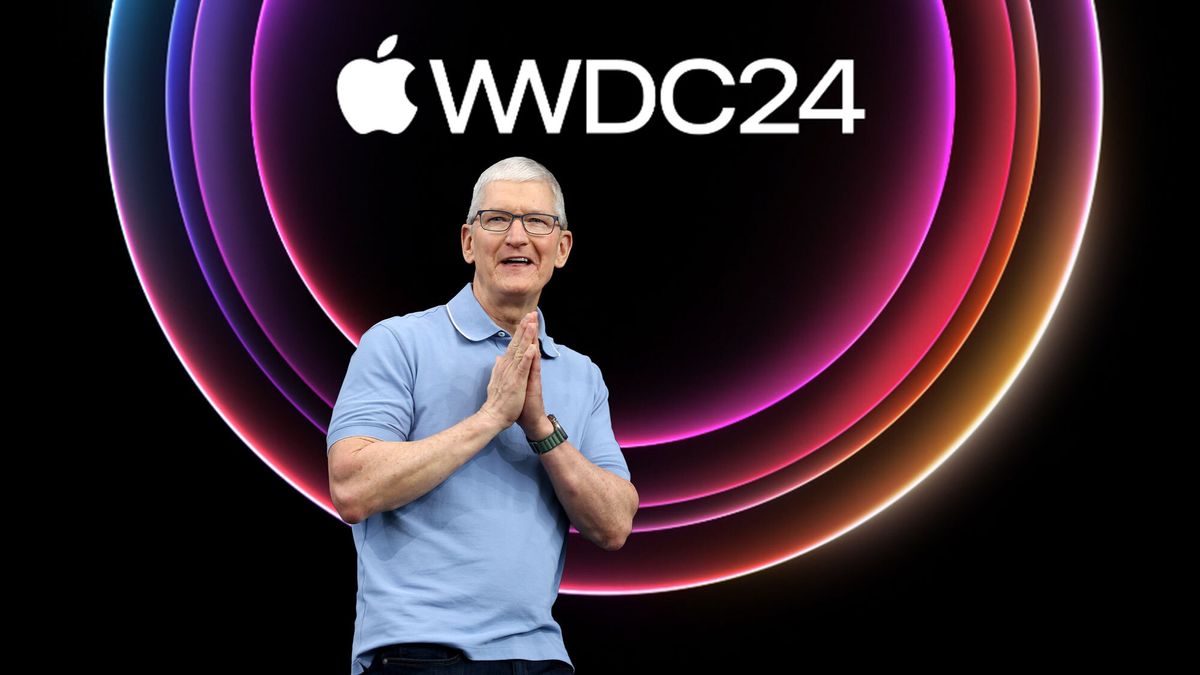






:max_bytes(150000):strip_icc()/roundup-writereditor-loved-deals-tout-f5de51f85de145b2b1eb99cdb7b6cb84.jpg)


